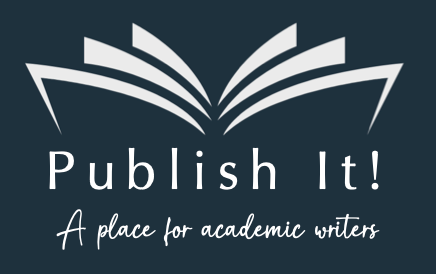Why don't you just write?
Nov 01, 2024
As an academic, I used to spend a lot of the day scrolling emails, skimming news and academic headlines, peaking at social media, checking emails again, catching up on half a podcast, logging in late to a webinar while I checked emails again, popping into a staff meeting, running to give a lecture, the list goes on…and the day was suddenly night. With so many tasks vying for my attention it was easy to push writing projects back one more day. Tomorrow, I told myself. I’ll make time for it tomorrow.
But tomorrow was already busy.
We spend so much of our lives consuming, absorbing, listening, ingesting, taking it all in—that it’s hard to shift into producing mode. To avoid creating, we neglect. It is easier and more satisfying to tick small tasks off the list, rather than chipping away at a big project with no specific deadline—like that journal paper.
In the process of delay, we develop multiple mindsets. Outwardly, we are ‘working on a paper’—saying this gives us a sense of pride when colleagues check in. Inwardly, we fear the ambiguous future deadline (or maybe it’s a real deadline) approaching when progress on the paper just isn’t happening—such thinking can make us feel avoidant. Other voices emerge when we actually do find time to sit and write that tell us we aren’t working fast enough or should revise that paragraph again or go back and do more reading or the analysis isn’t explored fully. Another voice questions our authority and dismisses our conclusions. Yet another skeptic laughs at our word-choice—this is supposed to be an academic paper. We feel judged by a thousand eyes that have yet to even read our first sentence.
So many inner critics. So much anxiety. Optimistically, a tiny voice tries to sooth us by saying tomorrow can be a fresh start.
But tomorrow is already busy. So how can we start today?
Today, I offer my humble advice to help you unblock your path to sit down and just write. Here is my list, in no particular order. One or more or all of these might help you—at some point I have relied on each of them.
- Write every day. This is not possible all the time. But if you are determined to publish a paper, there will be a period of time when you just need to commit to 15-60 minutes most days of the week. It could be for three consecutive weeks—it could be for two months. Plan it and block your calendar before tomorrow is too busy. This time should be non-negotiable.
- Make it a habit by doing it at the same time or after another habit. One of the best ways to start a new habit is to attach it to an existing habit. Are you checking email for an hour while you drink coffee every morning? Reduce to 45 minutes and use the extra 15 minutes to write. Mid-afternoon lecture prep? Write for 15 minutes and then switch to prep.
- Keep your paper open on your computer. This one is easy because it’s there for you to dip in and out of when a thought strikes. Waiting for a colleague who is late for your meeting? Format your citations. Have a few minutes between lunch and your class? Re-read the first paragraph of your methods section.
- Start easy. We avoid things that give us negative feelings. I have found that if I start my writing session with an easy task, it creates a positive feeling that motivates me to continue writing. What is easy? Formatting a table. Checking citations. Computer-aided spell-checking.
- Set a timer rather than a word count. It can be tempting to set a goal to, for example, finish the results section. But what happens when you realize some part of the analysis requires revision or the logic of your evidence requires major reorganization? Writing suddenly feels overwhelming. And you will probably remember this feeling the next time you sit down—or you’ll avoid writing altogether. A timer works great to get you off the hook, and to give you a break. What you might find is that after you go off to do other things, you are still thinking about your paper and the hurdle ahead—and strangely, new ideas will surface to address the issue; a little spark of energy that motivates you tomorrow to keep writing.
- Set a task. Decide if timer or task is more satisfying and motivating. A timer is great, but sometimes you need to sit down and just finish it. Whether it’s the introduction or your discussion or the paper as a cohesive draft, a longer, uninterrupted session might be the way to go. Focusing on completing that task will give you the satisfaction to move forward to the next task—next time.
- Set goals: big goal, middle goal, micro goal. The most daunting goal when you are first drafting a paper is to get it published. Of course, that is the big goal. But motivation derives from proof that what you are doing is moving you toward that big goal. What is the proof? That you are achieving middle goals: often by competing specific sections. How do you achieve middle goals? By setting micro goals. For example, it is unlikely you can sit down and write the entire discussion section. Start with a micro goal of stating if your hypothesis was confirmed or how you answered your research question. Break your middle goals into micro goals and tackle them in whatever order works for you. Writing a paper is not—and should not be—a linear process.
- Read and take notes. If you are at the early stages—or if it has been more than a year since you reviewed the state of the published literature on your topic—take a break and read 2-3 most current, most relevant papers and take notes. But do avoid procrasti-learning in which you spiral down into ‘I haven’t read enough!’ Limiting yourself to 2-3 papers will guardrail you against that rabbit hole.
- Go for a walk. This is one of my favorites. Walking is good for so many reasons beyond physical health. Research confirms that walking and creativity are linked (look up the Stanford study—I’ll let you do your own research). I’ve known this for years because of my own habit of walking and the inevitable sparks of ideas that emerge for me during even a 10-minute walk. If I’m blocked, stumped, confused, resistant, or grumpy about a paper (or project or other endeavor), I walk to unblock.
- Skip the hard parts. This goes back to #4: Start easy, and #7 Set goals. Noting that writing shouldn’t be a linear process, you can feel free to skip the hard parts (for now) and just tackle the easy ones. Focus on what draws you. Want to describe the context? Do it. Want to make recommendations? Do it. Want to edit a figure? Do it. As you work through the easy (or easier) parts, you might find the harder parts become less difficult.
- Insert instructions. As you skip over hard parts, it can be useful to make notes in-text or add comment bubbles with instructions on what you will need to do to complete those parts when you eventually circle back around. Psychologically it can allow your mind to put the hard task to rest—thereby releasing your mental energy from worrying about it. It will be there when you come back.
- Get feedback. If you feel stuck, get feedback from co-authors, colleagues, or anyone you trust to give you honest, critical (helpful) feedback. Careful not to let this be an excuse to take a long break…request a response within a week (or two maximum if it’s a busy time for them). Follow up at the deadline and move on even if they don’t give you a reply.
- Burnout is real. I know this one all too well. Publish or perish—all while you have a full schedule of non-writing obligations. It’s ok to skip a day of writing. It’s ok to rest. I suggest to use your rest day to take a long walk. The reality is that burnout isn’t solvable in a day or a week…and can sometimes linger for months or longer. But know that writing a paper is a creative act—and burnout is the parasite of creativity. Rest, recover, create.
- You can write about anything. What is the lens or perspective or angle that you are passionate about? Adjacent to #13: Burnout, if you aren’t passionate about your topic then it might not be the right topic for you. You have a unique expertise and perspective—lean into it to draw out what engages you about your topic. It will make writing more interesting, and you will move forward more quickly with more confidence.
- This is (probably) not the last paper you will ever write. Optimistically, this has several implications: you don’t have to include everything and the kitchen sink; it doesn’t have to be your most important idea ever; treat it as the training to the next, better, paper you will write.
- Peer Review!!! I cannot understate the value of serving as a peer reviewer of manuscripts submitted to journals in your field. For so many reasons. To name a few: you will see the state of a typical manuscript before it goes through the review process and gets published. You will see how papers are structured (or lack structure, argument, evaluation, etc). Although you cannot cite or discuss unpublished works that you review, you gain insight to the most current state of the research. There are so many more reasons to peer review…
- Imposter Syndrome…is it real? Now considered a behavioural health phenomenon by the National Institutes of Health, it “affects” high-functioning, high-achieving individuals when ‘individuals cannot internalize their success and subsequently experience pervasive feelings of self-doubt, anxiety, depression, and/or apprehension of being exposed as a fraud in their work, despite verifiable and objective evidence of their successfulness.’ (Source: https://www.ncbi.nlm.nih.gov/books/NBK585058/) I want to argue that we should be careful about medicalizing something that basically every professional at some point experiences. When something is accepted as a disorder, it validates the illness—it provides a label and externalizes it in a way that reduces our agency. But what if we rather just normalized it? You are an expert. You have a unique point of view. Your contribution matters. And there are always going to be counterpoints. Being part of the discourse means participating in a space where there will be counterarguments. Enough said?
- We all get anxious about something…if it’s writing for you, lean into it. What is it trying to tell you? What advice would you give a colleague if they came to you with the same issues? Tell your inner critic that same advice.
- Find a co-author and share the burden.
- Done is better than perfect.
I could go on with this list, but I think I’ve covered enough topics. Let me know if you have experienced a writing block and how you managed it. Or if you have comments on any of my suggestions to un-block, I’d love you to share—positive or negative comments welcome, please be respectful in any case.



